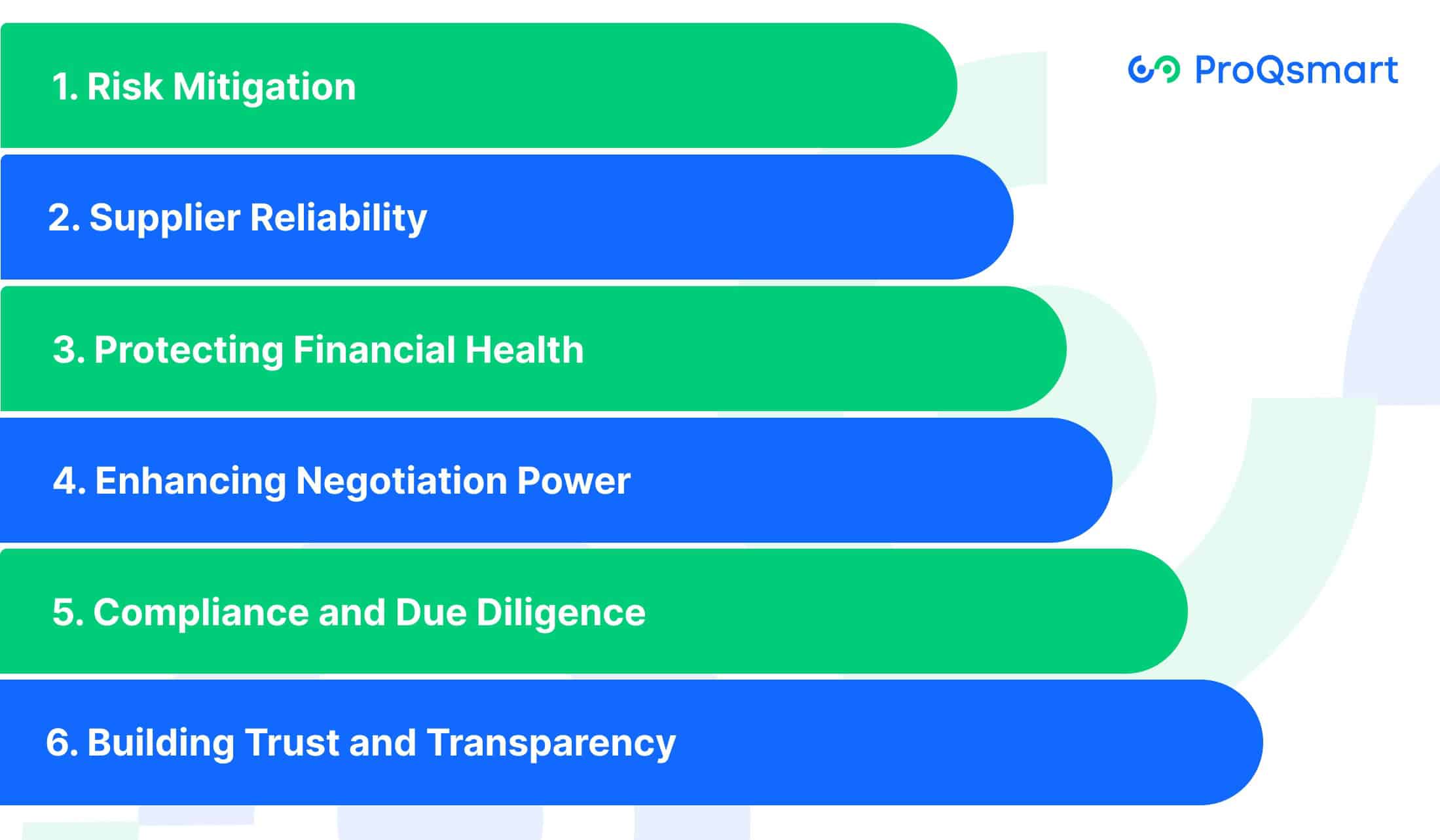In procurement process, managing risk is a critical aspect of ensuring a smooth supply chain and stable business operations. One key risk management tool that is often overlooked is the credit check—a process that plays a vital role in safeguarding a company’s interests. By assessing the financial stability and creditworthiness of suppliers, organizations can make informed decisions that minimize potential risks associated with procurement. This blog post will explore what a credit check entails, its essential role in procurement, and why it is an indispensable practice for businesses of all sizes. Understanding the importance of credit sourcing can help organizations maintain strong supplier relationships while ensuring the reliability and sustainability of their supply chains.
What Is A Credit Check?
A credit check, in the context of sourcing procurement, involves assessing the creditworthiness of potential suppliers to ensure they are financially stable and able to meet contractual obligations. This process includes analyzing a supplier’s credit history, financial health, and overall risk profile before engaging in business transactions.
The Importance of Credit Checks in Procurement

Conducting credit checks is a crucial practice in procurement, as it helps organizations identify and manage financial risks associated with suppliers. Below are key points that elaborate on the importance of credit checks in procurement:
1. Risk Mitigation
First and foremost, conducting credit checks helps identify any financial risks associated with a supplier. By assessing a supplier’s creditworthiness, organizations can uncover potential issues such as the risk of bankruptcy or financial instability. This proactive approach allows businesses to make informed decisions about which suppliers to engage with, thereby minimizing the likelihood of disruptions in the supply chain. For instance, if a supplier shows signs of financial distress, a company can seek alternative sources before any issues arise.
2. Supplier Reliability
Moreover, understanding a supplier’s financial health can serve as a strong indicator of their reliability and operational longevity. A supplier with a solid credit rating is more likely to fulfill orders consistently and maintain quality standards over time. This reliability is essential for businesses that depend on timely deliveries and high-quality products or services. By prioritizing suppliers with good credit histories, organizations can establish long-term partnerships that contribute to operational stability.
3. Protecting Financial Health
In addition to enhancing supplier reliability, credit checks play a vital role in protecting a company’s financial health. By preventing disruptions that may arise from a supplier’s failure, businesses can avoid unexpected costs and losses associated with delays or substandard goods. For example, if a critical supplier suddenly goes out of business, it could lead to production halts and significant financial repercussions. Conducting thorough credit checks helps mitigate this risk by ensuring that companies engage with financially stable suppliers.
4. Enhancing Negotiation Power
Furthermore, having knowledge of a supplier’s financial status can enhance an organization’s negotiation power. When procurement professionals are aware of a supplier’s creditworthiness, they can negotiate better terms and conditions based on the supplier’s stability. This insight allows companies to seek favorable pricing, payment terms, and delivery schedules that align with their operational needs.
5. Compliance and Due Diligence
Additionally, credit checks support compliance and due diligence efforts within procurement practices. Many industries are subject to regulations that require businesses to conduct thorough assessments of their suppliers. By implementing credit checks as part of the procurement process, organizations can demonstrate their commitment to responsible sourcing and compliance with industry standards.
6. Building Trust and Transparency
Finally, conducting credit checks fosters trust and transparency between businesses and their suppliers. When organizations prioritize ethical sourcing and financial responsibility, they set the foundation for strong relationships built on mutual respect and accountability. Suppliers are more likely to engage positively when they know they are being evaluated fairly based on their financial health.
Key Steps in Conducting a Credit Check
Conducting a thorough credit check is an essential practice in procurement sourcing that helps organizations assess the financial stability of their suppliers. Here are the key steps involved in this process, along with additional pointers to enhance your credit checking efforts:
1. Collecting Supplier Information
The first step in conducting a credit check is to gather all necessary supplier information. This includes obtaining details such as the supplier’s business name, address, tax identification number, and contact information. Having accurate and comprehensive data is crucial for conducting a thorough check. Additionally, consider collecting information about the supplier’s ownership structure and business history, as this can provide further insights into their stability.
2. Consulting Credit Bureaus
Next, consult reputable credit bureaus to obtain detailed credit reports and ratings on the supplier. These reports typically include valuable information such as payment history, outstanding debts, and overall financial stability. When choosing a credit bureau, ensure that it is well-regarded and provides comprehensive data relevant to your industry. This step is vital for making informed decisions about potential suppliers.
3. Analyzing Credit Reports
Once you have obtained the credit reports, it is essential to analyze them carefully. Evaluate the supplier’s financial behavior by examining key indicators such as their ability to pay bills on time and manage debt effectively. Look for any red flags, such as late payments or high levels of outstanding debt, which could signal potential risks. Additionally, compare the supplier’s credit rating against industry benchmarks to gauge their relative financial health.
4. Continuous Monitoring
After conducting an initial credit check, it’s essential to implement a system for continuous monitoring of the supplier’s financial status. Regularly reviewing their creditworthiness allows you to catch any potential issues early before they escalate. To stay informed about changes in the supplier’s financial situation or credit rating, consider setting up alerts or scheduling periodic reviews.
Leveraging technology can greatly enhance this monitoring process. ProQsmart offers advanced features that automate supplier assessments and provide real-time updates on financial health. By integrating ProQsmart into your procurement strategy, you can streamline continuous monitoring, ensuring that you are always aware of any changes that could impact your supply chain. This proactive approach not only mitigates risks but also strengthens supplier relationships by fostering transparency and accountability in credit sourcing procurement.
5. Utilizing Technology for Efficiency
To streamline the credit checking process, consider leveraging technology solutions like ProQsmart. ProQsmart offers advanced features that facilitate comprehensive supplier assessments and automate the collection and analysis of credit data. By integrating such tools into your procurement processes, you can enhance efficiency and ensure that your organization consistently makes informed decisions regarding supplier selection.
6. Documenting Findings
Finally, it is essential to document your findings from the credit checks thoroughly. Maintain records of all assessments conducted, including any concerns raised during the analysis. This documentation can serve as a valuable reference for future procurement decisions and help justify choices made regarding supplier relationships.
Why Credit Checks Are Crucial in Procurement
- Ensuring Continuous Supply: By verifying the financial stability of suppliers, companies can ensure a continuous and reliable supply of products and services.
- Maintaining Quality of Service: Financially stable suppliers are more likely to maintain consistent quality in their deliveries and adhere to compliance standards.
- Building Trust and Transparency: Credit checks contribute to building a foundation of trust and transparency between a company and its suppliers, essential for effective collaboration and negotiation.
Conclusion
In summary, credit checks are a vital component of the credit sourcing procurement process, providing essential insights into the financial stability of suppliers. By implementing regular and thorough credit checks, companies can significantly mitigate financial risks, ensure supplier reliability, and maintain operational continuity. This proactive approach not only protects the organization from potential disruptions but also fosters stronger relationships with suppliers based on trust and transparency.
To further enhance your credit management practices, consider utilizing tools like ProQsmart. ProQsmart offers advanced features that streamline the credit check process and facilitate ongoing monitoring of supplier financial health. By integrating ProQsmart into your procurement strategy, you can ensure informed decision-making that supports your business’s long-term success. Book a demo today to discover how ProQsmart can help you optimize your procurement processes while safeguarding your interests!



